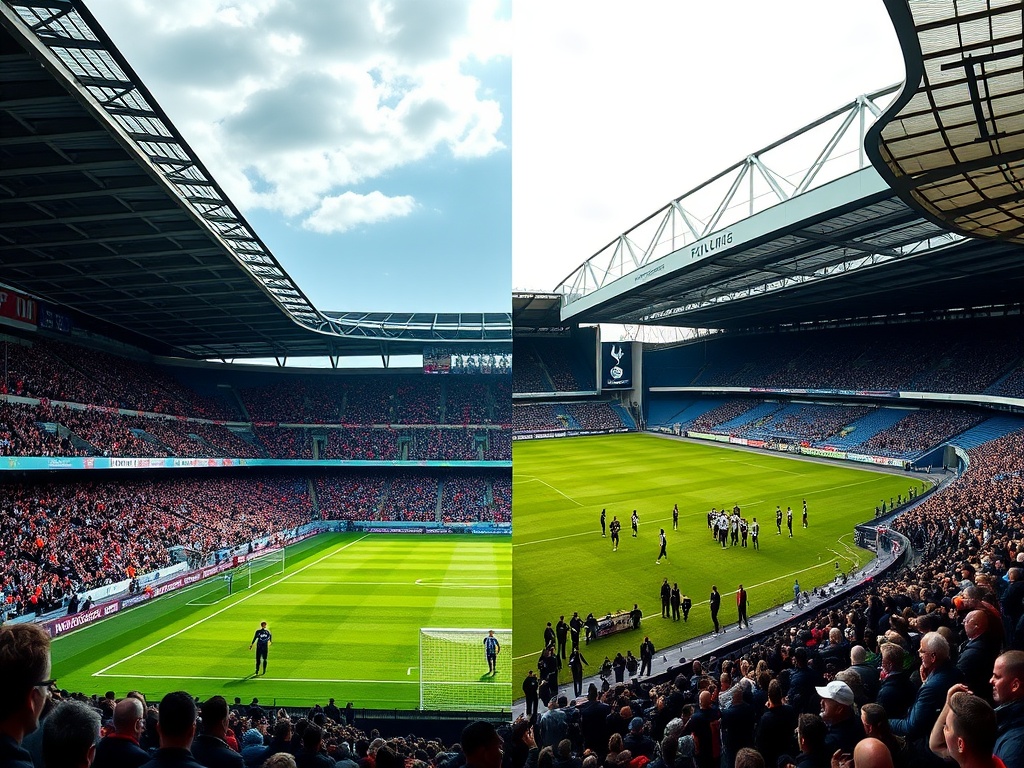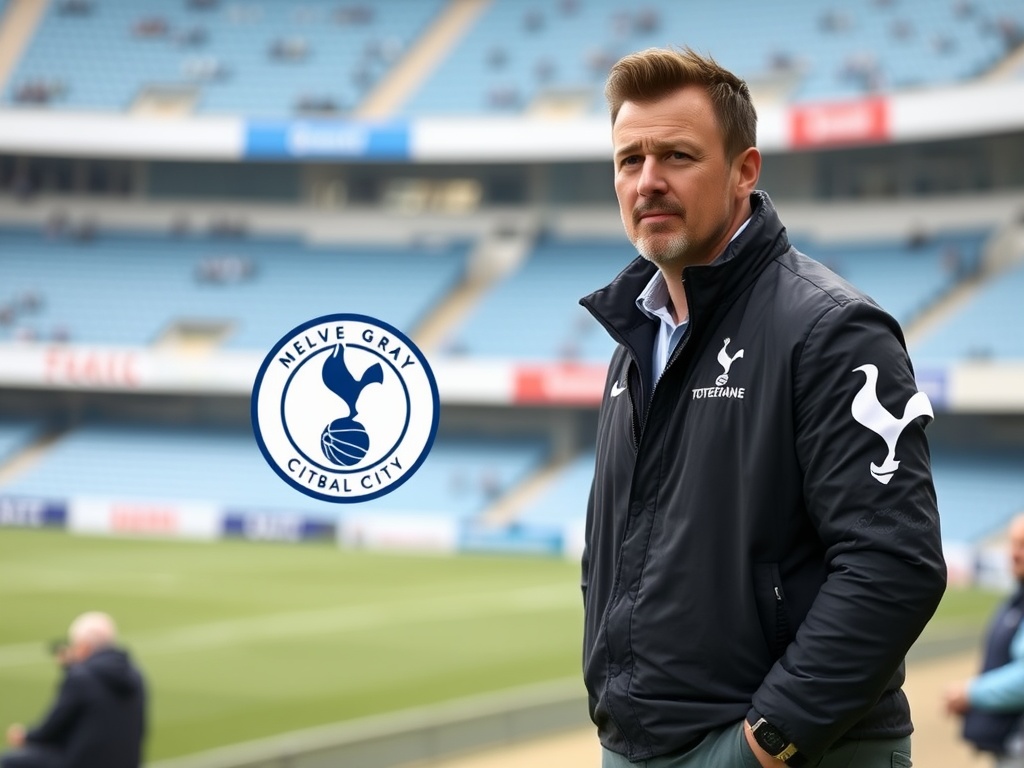Scott Munn’s Journey Through Football Management

When the City Football Group (CFG), the formidable conglomerate that oversees Manchester City and numerous other football clubs worldwide, acquired Melbourne Heart in 2014, Scott Munn found himself in a precarious position. As the club’s inaugural chief executive since its inception in 2009, Munn had played a pivotal role in its development. The takeover, however, cast a shadow of uncertainty over his future. Many anticipated that he and his team would be swiftly replaced by CFG’s own personnel.
During a meeting at the Crown Casino along the picturesque Yarra River, Munn and his colleagues gathered with CFG executives Simon Pearce, Ferran Soriano, and Brian Marwood. With trepidation, they awaited what many thought would be a dismissal. Each executive asked the assembled staff what kept them awake at night. As Munn listened to his colleagues voice their concerns—dwindling funds, the sale of key players, and departing sponsors—he prepared to share his own thoughts. When his turn arrived, Munn quipped that if CFG could resolve those issues, he would have no problems left. This witty remark marked the beginning of a mutually beneficial relationship that would elevate Munn’s status in world football over the next decade.
Today, Munn stands as one of the most influential figures at Tottenham Hotspur, albeit one who remains relatively unknown to the broader public. He has become a key ally to fellow Australian Ange Postecoglou, the club’s current manager, and is dedicated to seeking that elusive extra 0.5 percent of performance that others might overlook. Those who know him liken Munn to a Dave Brailsford-style executive, focused on maximizing marginal gains.
Some believe Munn was brought in to serve as a buffer between Daniel Levy, the chairman currently facing significant criticism from fans, and the club’s football operations. Whether he acts as a wedge or a protective shield against a restless fanbase remains a topic of debate.
CFG held Munn in high regard, retaining him to oversee their ambitious plans in Australia. Under his leadership, the club signed prominent players like Tim Cahill and Aaron Mooy, clinching their first trophy in 2016 for the men’s team while also achieving success with the women’s team. However, the journey was not without challenges: inconsistent match attendance, frequent player turnover, and a lingering perception that the fledgling club had sacrificed its identity to become another cog in the CFG machine.
After five years as Melbourne City’s chief executive, Munn advanced within the CFG hierarchy to take the role of chief executive for China. Established in 2016, CFG China opened offices in Shanghai and Chengdu. One of Munn’s primary responsibilities was chairing Sishuan Jiuniu FC, a club formed in 2017 that competed in the China Amateur Football League. CFG acquired Sishuan Jiuniu in 2019, adding another complex project to Munn’s portfolio, rife with challenges.
When Munn took charge, Jiuniu FC was languishing in China League Two. They were fortuitously promoted to China League One in 2020 after the Chinese Football Association canceled the registrations of eleven clubs for unpaid wages, triggering a reorganization of the professional leagues. Munn attempted to facilitate a relocation to Changsha, Hunan, but after an initial agreement, the Chinese FA backtracked, straining relations to the point where CFG threatened to withdraw its investment in Chinese football entirely.
Working under the scrutiny of the Chinese government likely prepared Munn for the challenges he would face at Tottenham. The club eventually relocated to Shenzhen Peng, undergoing a comprehensive rebranding that included renaming the club to Shenzhen Peng City.
A month after Munn departed for Spurs in 2023, Shenzhen Peng City achieved promotion to the Chinese Super League for the first time, winning the China League One title.
Since joining Tottenham in September 2023, Munn has been privy to the club’s tumultuous nature. Supporting Spurs often feels like riding a rollercoaster—full of dramatic highs and gut-wrenching lows, with the inevitable descent that leaves supporters yearning for stability.
Munn’s recruitment followed a six-month review conducted by external consultants commissioned by Levy, aimed at assessing the club’s long-term health and sustainability. The overarching sentiment was that Spurs should adopt operational strategies similar to those of Manchester City, making Munn’s experience invaluable, having immersed himself in CFG’s operations for years.
Levy envisioned a more innovative recruitment strategy focused on acquiring younger players with potential resale value while enhancing the academy’s ability to cultivate top-tier talent. Munn was deemed to possess the necessary experience and skills to adapt to this evolving role.
Although Munn’s official start at Spurs came five months after his appointment and coincided with Postecoglou’s arrival as manager, he is believed to have had a hand in the managerial decision. Their paths had crossed previously in the CFG network when Postecoglou was in charge at Yokohama F. Marinos.
However, the Premier League is notorious for its rapid shifts in fortune, and Munn has witnessed firsthand how quickly tides can turn. What began as exhilarating football under Postecoglou, leading many to believe he had discovered a revolutionary approach, has recently taken a downturn. In various forums and discussions, Spurs fans have begun questioning why Munn has not faced greater scrutiny.
Initially, it was thought that Munn’s appointment would allow Levy to take a step back from day-to-day operations. This sentiment was echoed by The Sydney Morning Herald, which characterized Munn’s role as “a buffer between Tottenham Hotspur chairman Daniel Levy and the club’s football department.” However, recent developments indicate that Levy remains deeply involved, as evidenced by his private trip to Prague on New Year’s Day for negotiations regarding the £12.5 million signing of young goalkeeper Antonin Kinsky.
Little is known about Munn in European football circles due to the majority of his career being spent in Australia and other sports, including rugby league and Olympic organization. Yet, he possesses a wealth of experience, having navigated the challenges of running clubs, governing bodies, and organizing major sporting events. His journey has taken him from humble beginnings, where he dealt with minimal resources and players recovering in ice-filled wheelie bins, to the opulent infrastructure of City’s Abu Dhabi owners.
Before joining Spurs, Munn celebrated success wherever he went. Many former colleagues speak highly of him, praising his personal touch, willingness to mentor others, and the guidance he offers. In China, he was recognized as a smart, patient, and diplomatic leader.
However, beneath the amiable exterior characterized by friendly eyes, a warm smile, and stylish spectacles, those who have worked with him note a sharper, more competitive edge. One football professional declined to comment on Munn, stating that they had nothing positive to share.
On Thursday mornings, Munn can often be spotted watching A-League matches alongside Postecoglou at Tottenham’s training facility. Sharing a similar sense of humor, the duo frequently enjoys lighthearted banter.
Munn sees his role as one of fostering an environment where players are held accountable for their performance, allowing Postecoglou to concentrate on coaching while providing the necessary resources for success.
As one of the most powerful figures in the Premier League, Munn is tasked with overseeing the effective management of revenues projected to reach €615 million (£510 million) in 2024.
He has expressed gratitude for the opportunity to work under Levy, learning from one of football’s toughest negotiators and dealmakers, and appreciates the support the chairman has extended to him. Nonetheless, his role is as unenviable as it is prestigious.
Munn’s responsibilities demand a constant balance between addressing immediate needs and planning for the future. He must ensure that the current season runs smoothly while simultaneously preparing for the next. This includes coordinating global tours, optimizing the academy’s output, ensuring the women’s team remains competitive, and managing the stadium’s operational efficiency. The list of duties appears never-ending.
In such a high-stakes environment, Munn’s role can become overwhelming; he is accountable for everything yet maintains limited control over the myriad factors at play, relying on the trust and collaboration of numerous stakeholders in a notoriously cutthroat industry. He is perfectly positioned to absorb blame when circumstances require someone to take the fall.
